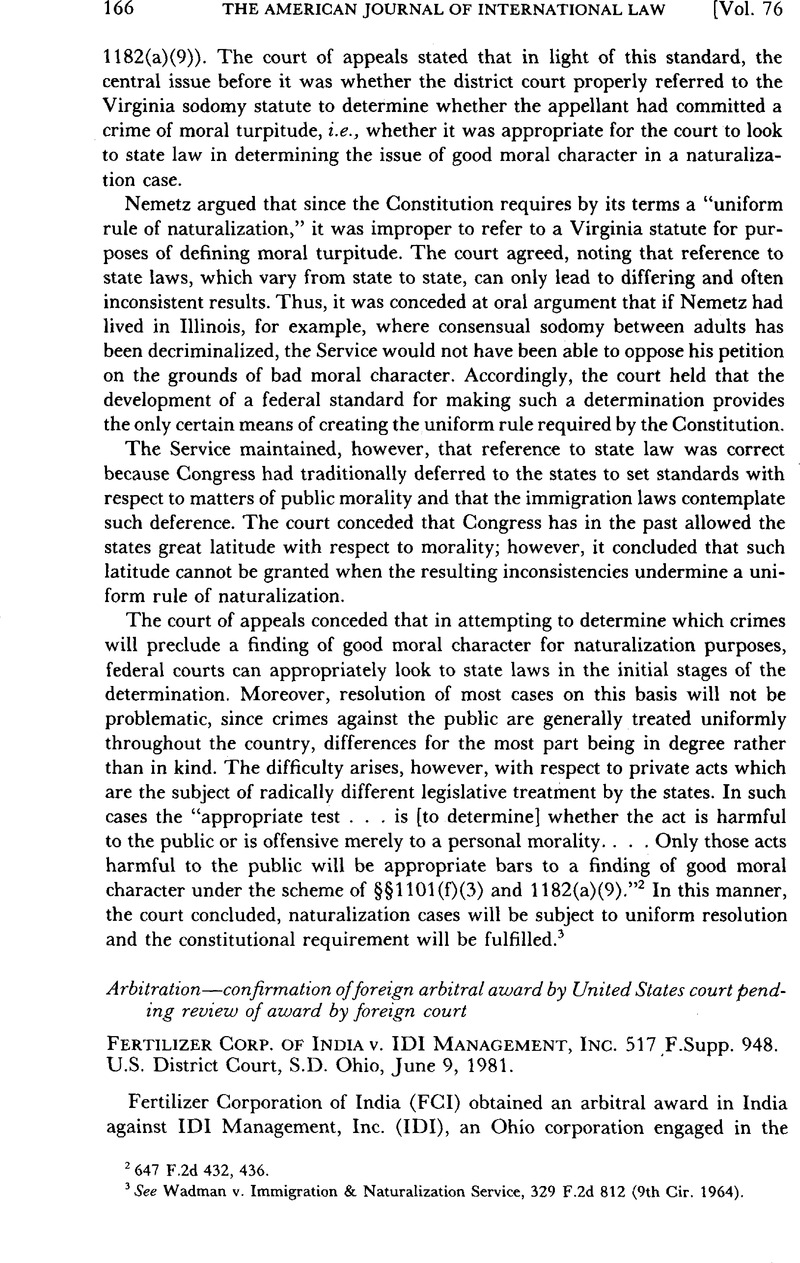No CrossRef data available.
Published online by Cambridge University Press: 27 February 2017

1 9 U.S.C. §201 el seq. (1976), 21 UST 2517, TIAS No. 6997, 330 UNTS 3.
2 The Courts of Appeals for the Sixth, Fifth, and Second Circuits have upheld jurisdiction based upon the Convention in similar cases. See, e.g., In re Arbitration Between Audi NSO Auto Union Aktiengesellschaft v. Overseas Motors, Inc., 595 F.2d 1222 (6th Cir. 1979); Imperial Ethiopian Gov’t v. Baruch–Foster Corp., 535 F.2d 334 (5th Cir. 1976); Fotochrome, Inc. v. Copal Co., 517 F.2d 512 (2d Cir. 1975).
3 517 F.Supp. 948, 954. The court’s rejection of this defense comports with a recent line of decisions by the Second Circuit that have construed the Convention’s public policy defense narrowly so as to deny enforcement “only where enforcement would violate the forum state’s most basic notions of morality and justice.” Parsons & Whittemore Overseas Co., Inc. v. Société Générale de l’Industrie du Papier (RAKTA), 508 F.2d 969, 974 (2d Cir. 1974). See also International Produce, Inc. v. A/S Rosshavet, 638 F.2d 548 (2d Cir. 1981); Andros Compania Maritima v. Marc Rich & Co., 579 F.2d 691 (2d Cir. 1978).
4 While concluding that the award was procedurally final for the purposes of enforcement, the court recognized the potential difficulties raised by enforcement of an award that was currently being reviewed. Thus, the court exercised its broad discretionary power to suspend enforcement pending the outcome of the case on appeal.
5 517 F.Supp. at 959.